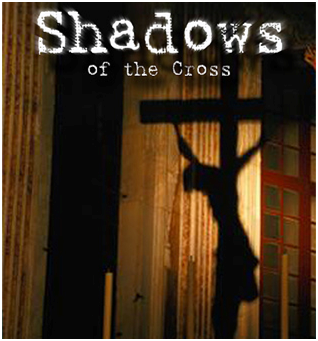2/3 “Shadows of the Cross on the Feast” 1 Cor. 10-11
 Title: Shadows of the Cross on the Feast
Title: Shadows of the Cross on the Feast
Texts: 1 Cor. 10 & 11
In a Nutshell: There is a lot of talk about eating and drinking in these two chapters. It is a common experience for a meal to be “a participation” in something with great meaning to people. When the cross casts its shadow over the Lord’s supper there is an overtone of gratitude for grace and a deep sorrow (repentance) for selfishness. When the world overshadows “a meal” there is an overtone of “look at me” and an undertone of looking for more. How’s your meditation going?
Ice Breaker: Imagine you have hosted a birthday party for your 16 year old. The meal is done, birthday cake eaten and your son has opened the three presents your family purchased for him, he looks up and asks, “Is that all?” What are your next thoughts and words? By the way have you ever wondered why the birthday boy gets the presents instead of the birthday boy buying presents for Mom? Just askin’ She did all the work since then, he just showed up!
CONNECTING WITH THE TEXTS:
- Why were those that “passed through the sea” not pleasing to God? What happened? And why does Paul point the Corinthian Christians to that history? 1 Cor. 10:1-11
- Think about the word “participation.” What all do we Christians participate in and with when we take the Lord’s Supper? 1 Cor. 10:16-21
- Boil it down, if I participate in any meal/celebration what should that event be able to do? 1 Cor. 10:23,24,31
- What is meant by the statement: “When interpreting the New Testament epistles it is important to understand the concept of the ‘occasional nature of the letters?’”
- What does 1 Cor. 11:3 tell us in your own words? If the “head covering” illustrate was a first century understanding concerning respect and spiritual authority what would be a good 21st century illustration?
- How can we tell the Corinthian Christians had turned the Lord’s Supper into something selfish rather than selfless? 1 Cor. 11:17-22
- What ramifications are there for a church when the Lord’s Supper is selfishly observed, rather than selflessly observed? 1 Cor. 11:27-34
REFLECTING ON YOUR LIFE:
- When Jesus instituted the Lord’s Supper he washed his disciples feet (Jn. 13) what was Jesus saying by doing this? How have you “washed someone’s feet” recently?
- Do you find yourself recoiling at the idea of spiritual authority, submitting to someone else out of respect for God?
- Is there any evidence that for you taking the Lord’s Supper at TLCC is viewed as a religious ritual rather than a reminder of a selfless action done by Jesus, inspiring a selfless reaction from you?
CONNECTING WITH YOUR CHURCH:
- Some churches teach that God does not want churches to have P0t-lucks at church. What do you think…is that the point of 1 Cor. 11:20-22; 33,34?
- Again, some churches teach that 1 Cor. 11 teaches that a church must wait until everyone can eat “the loaf” and “drink the cup” at the same moment, “in unison.” Is that what 1 Cor. 11:11,33 means?
CARE Sheet Resources:
- The Lord’s Supper: Doug’s blog page of Bible references and internet resources
- This morning’s video link to “The Gospel of Matthew”
- The Passion of the Christ - the video
- The Visual Bible - Matthew
NEXT WEEK:
Title: “Shadows of the Cross within the Fellowship”
Text: 1 Cor. 12-14
Questions: Look at these Scriptures (1 Cor. 12:26; 13:3; 14:26b) and describe how they can all be linked by this thought. “The cross overshadows the fellowship of the church by pointing toward selflessness in my heart for the greater good of others.” Contrasted to that, how might these verses warn me that the selflessness attitude of the cross is not overshadowing our church’s fellowship, but rather it is the selfishness of the world.
Parents with your children: Help your children sort out this week the difference between doing good for personal benefit, verses doing good for the benefit of others. Email me some illustrations THEY come up with. (ddelp@timberlakechristian.org)